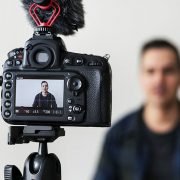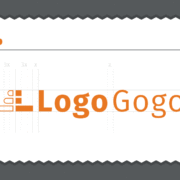Millennials and the LASIK Experience
Laser vision correction is transformative. A patient can enter your office one day with a visual acuity of 20/400 and return the following day 20/15.
That is no small feat. Years of research and development, FDA approvals, and just plain hard work have made LASIK one of the safest and most effective surgeries in the world. That is a big deal. LASIK is not the only option for correction; if a person is not a candidate for LASIK, there are implant procedures as well as flapless techniques. The capabilities that accompany using advanced technology are truly awesome, and no other field of medicine can boast similar effectiveness and safety.
When it comes to LASIK surgery and millennials, however, it is important to remember two things beyond other more philosophical generalizations about what they want, how they work, and how they will contribute to society. First, millennials are going to be alive for a long time, and they have their entire adult lives in front of them. Second, as specialists in refractive and implant vision correction, you can help them see and, ultimately, experience life as it happens. In short, LASIK is an experiential offering.
LASIK will not change a person’s lifestyle, and it will not change who he or she is as a person; it will, however, transform how he or she sees the world or observe the detail on a butterfly’s wings. Your practice has the technology and the experience to make it happen. How can you invite millennials to learn more about LASIK and, perhaps, schedule appointments for LASIK consultations?
Reaching Millennials
Millennials use a whole cohort of social media tools to learn about news, catch up with friends, and view videos, television shows, or stream music. They are digital natives, after all, having grown up with the boom of the Internet and all the gadgets that have popped up since. If they are watching a show on television, it is likely that they are simultaneously interacting with another device such as a phone or tablet. If their phone is not in their pocket, it is likely nearby.
What does this mean for your practice? It means that you need to have a mobile marketing plan and you need to be mindful of how your website looks from a phone. Your website needs to have a responsive design that will accommodate viewing on devices with varying screen sizes. Google has announced that responsive websites will rank higher in searches than websites that are not, and that makes responsiveness even more important for your practice. Do you want to rank highly in Google searches for LASIK? Your practice’s website needs to be responsive.
In addition to the responsive site, your practice needs to be mindful of how your social presence looks for mobile users and consider if you are sharing content that is easily accessible from a mobile device. Is your practice’s Facebook profile image easily read from a mobile device? Are you making sure that the links your page shares are easily read from a mobile device? What is your social strategy? These are important questions.
Along with the increasing use of new devices, faster Internet speeds, and more intuitive website designs have come more helpful ways to measure how many visitors your website attracts on a daily basis and how they interact with different pages of your website. Using Google Analytics, for instance, we can see that the Vance Thompson Vision website attracts several hundred unique visitors every day and that those visitors most often move from the website’s homepage to biographical pages about our doctors. From the doctors’ pages, we can see that they then might jump to pages about LASIK, cataract surgery, or glaucoma treatment. Knowing how people use our website informs our team how they can improve it.
At a Glance
- When it comes to LASIK surgery and millennials, remember that millennials are going to be alive for a long time and they their entire adult lives in front of them.
- As a refractive and implant vision correction specialist, you can help them see and, ultimately, experience life as it happens. LASIK is experiential!
- Millennials care about costs, positive referrals, brand reputation, and the experience. Most importantly, they trust their friends.
- Millennials want to be remarkable, and they want to spend their money on experiences worth talking about, worth sharing with friends, and worth sharing with their families.
Brand Loyalty and Millennials
A recent survey conducted to learn more about millennials, media consumption, and brand loyalty, found that “60% of Millennials said that social advertising has the most influence over them in how they perceive a brand and a brand’s value. This compares with TV at 70%. Traditional media outside of TV fell flat.”1
When a friend sent this survey to me via email recently, I knew it was significant. Although billboards and newspaper ads may still be relevant to our mature customers, for whom traditional media has always been significant, there is no question that the eyes of most millennials are on smaller screens.
Even on our practice’s Facebook page, we have consistently seen that more users interact with our page from a mobile device. In a Facebook ad campaign for our practice, with equal emphasis on serving ads to desktop and mobile users, 95% of the people interacting with our ad did so from a mobile device. The number of people served our ad on a mobile device was more than 10 times the number of people served ads on a desktop.
Importance of Digital Referrals
Just because our practice is active on Facebook does not mean what we post holds a higher value than word-of-mouth posts. The same study referenced previously found, “Fifty-five percent of young shoppers said that a recommendation from a friend is one of the strongest influencers in getting them to try a new brand. Forty-seven percent consider brand reputation to be almost as important. Product quality ranks fourth at 35%, while price has the most sway at 62%.”
In another recent study, milennials showed that their generation favors exciting, firsthand experiences in lieu of money and careers: “Seventy-eight percent of Millennials would rather spend money on a desirable experience than buy coveted goods.”2 When asked where they plan to spend their money in the next year, millennials overwhelmingly respond with events and experiences in lieu of physical items (Figure).
We can learn a lot from these findings:
- Millennials care about costs.
- Millennials care about positive referrals.
- Millennials care about brand reputation.
- Millennials want an experience.
- Most importantly, millennials trust their friends.
Creating Remarkable Experiences
By any estimate, these are not groundbreaking findings; we have known for a long time that referrals are gold and that money is important to our customers.
Millennials want to be remarkable, and they want to spend their money on experiences worth talking about, worth sharing with friends, worth sharing with their families. In our practices, we need to be diligent about how we stage our customer experiences so that a laser vision correction experience is remarkable—not just in the actual transformation of the patient’s vision but also how the experience is designed and how it is possible for it to be captured.
When millennials call your office, do they have to listen to a recording and press buttons, or are they immediately in touch with a person from your office who can answer questions and schedule appointments? When millennials arrive for their consultation, are they welcomed like honored guests? Can they sit in a private area? Are there customizable beverage options? Do you offer public WiFi? When a millennial is going through the appointment, do your doctors and staff take the time to answer every question and address the risks involved with treatment? How do you educate millennials on the variety of options available for vision correction?
Create opportunities for patients to capture their experiences. If a patient expresses excitement about his or her eyes or about watching the surgery, make sure he or she has the opportunity to have a photo taken with the surgeon along with a video of the procedure. During a consultation, show and explain the topographical images of the patient’s eye, so patients can see what your instruments capture and see their eyes from a new perspective.
Keep in mind the friends and family members who accompany your patients. What do they see and hear during their experiences in your office? In our office, we have specially designed observation rooms that overlook our laser suites. One of our staff will narrate the procedure so that everyone watching can know what is happening. Ultimately, you should craft your patients’ experiences for all involved parties.
Conclusion
Although patients’ experiences should be important for all visitors to your office, the lean toward experiential spending will likely increase as more Millennials start families, relocate for jobs, and work toward making their lives remarkable.
Matt Jensen, MBA, is Founder and Principal of Matt Jensen Marketing, CEO of Vance Thompson Vision, and a certified Experience Economy Expert.







